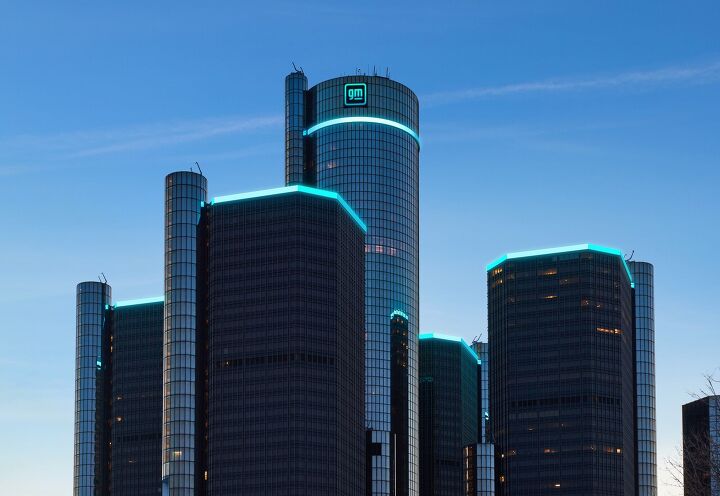
The National Highway Traffic Safety Administration (NHTSA) will soon release its proposal to increase Corporate Average Fuel Efficiency (CAFE) requirements and General Motors has signaled its concerns regarding how much more money it will cost the automotive industry. GM is estimating that the new rules could result in manufacturers paying $100-300 billion in emission fines between 2027 and 2031.
However, the Biden administration has reportedly said it’s highly dependent on which plan is implemented — suggesting industry penalties would vary heavily between companies and average out to be far lower than GM has claimed.
According to Reuters, GM executive David Strickland met with White House Office of Management and Budget officials on July 17th to discuss the matter. This was verified via information found on the White House website.
During the meeting, GM estimated the auto industry as a whole could see penalties ranging from $1,300 to $4,300 per vehicle by 2031. While the final tally would depend on whether a proposal from the Energy Department to revise the petroleum-equivalent fuel economy rating for electric vehicles is enacted, the company remained concerned that fines would still total in the hundreds of billions.
The Biden administration refuted the claims by suggesting that “under one scenario the auto industry could face about $3 billion in fuel economy penalties in 2032 and in another it might face essentially no penalties.”
From Reuters:
Another official told Reuters NHTSA's preferred CAFE proposal is estimated to save consumers more than $50 billion on fuel over a vehicles' lifetime and reduce oil use by more than 88 billion gallons through 2050. Overall, the benefits of the rule would exceed costs by more than $18 billion, the official added.
GM, which in 2021 vowed to halt the sale of new gasoline-powered vehicles by 2035, said this month it could face compliance challenges under the EV efficiency rules and vehicle emissions regulations. The company said on Thursday it looks forward to "further and increased technical dialogue with the EPA and the White House as the rule is finalized."
NHTSA's plan will follow the Environmental Protection Agency's April proposal to toughen 2027-2032 standards, requiring a 56 percent emissions cut that would result in 67 percent of new vehicles by 2032 being EVs.
And they say there’s no such thing as EV mandates.
The automotive lobby has been vehemently against the updated emission requirements. They want the EPA to ease off and have called the proposed targets unreasonable and impossible to achieve in the time allotted.
We’ve also seen just how much some corners of the industry have had to pay out thus far. Reuters referenced a June report that estimated Stellantis and GM paid a total of $363 million in civil penalties for failing to meet CAFE requirements for prior model years. Of course, automakers (particularly Stellantis when it was still Fiat Chrysler) also shelled out millions to purchase carbon credits in an effort to avoid government-backed fines.
Other than trying to game today’s CAFE requirements by exploiting regulatory loopholes that allow automakers to build increasingly large vehicles with subpar fuel economy ( we covered this in a recent article), the industry’s only recourse is to prioritize building all-electric vehicles and/or focus on putting smaller, hyper-efficient engines into current lineups.
Unfortunately, EV adoption rates haven’t kept pace with the industry’s initial assumptions and manufacturers are worried economical powertrains won’t deliver useful amounts of power or reliability on some of the larger models Americans tend to prefer. Otherwise, they’re going to continue battling to see who can buy up the most carbon offsets before they run out (which arguably does little to help the environment) or prepare to hand a sizable amount of cash to the federal government every year.
[Image: General Motors]
Become a TTAC insider. Get the latest news, features, TTAC takes, and everything else that gets to the truth about cars first by subscribing to our newsletter.
via Autobuzz Today
Comments
Post a Comment